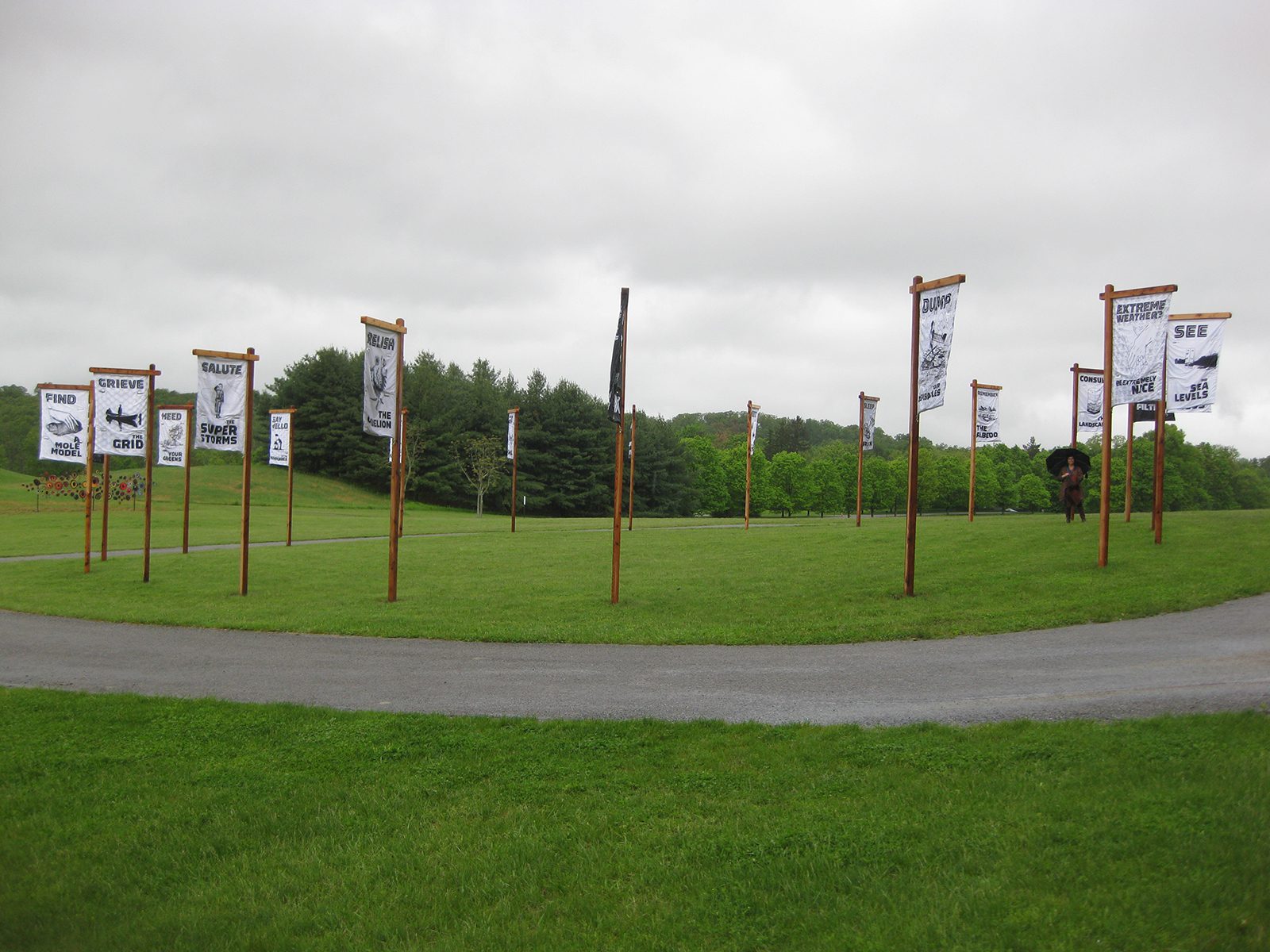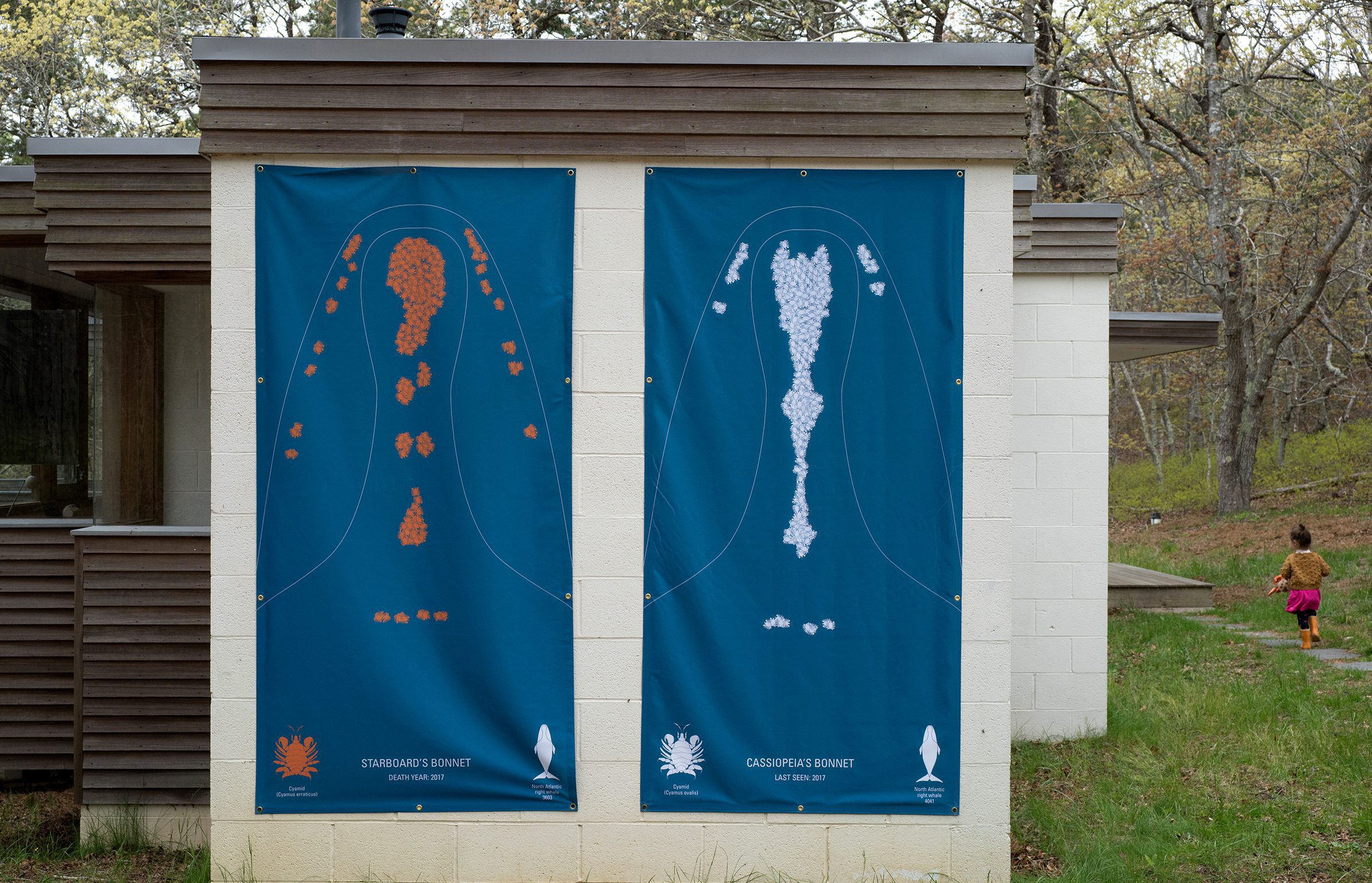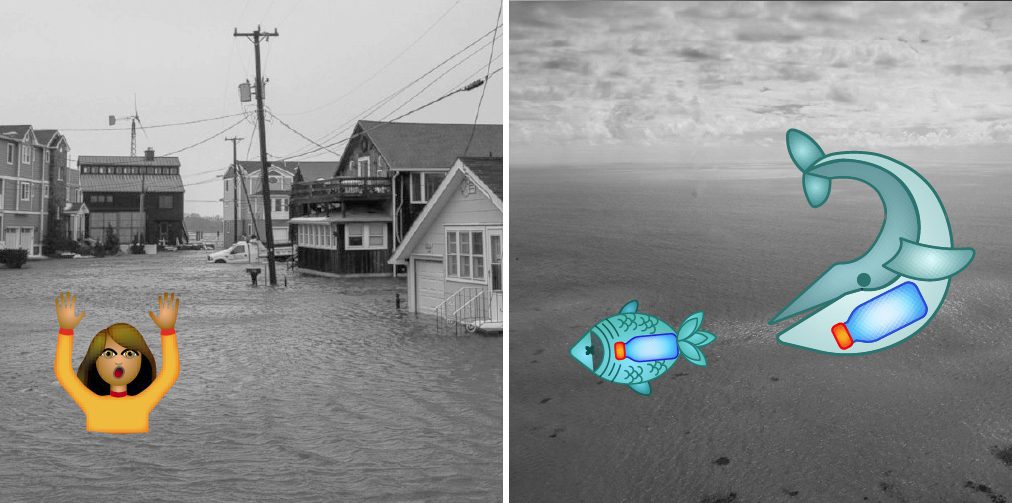MARINA ZURKOW
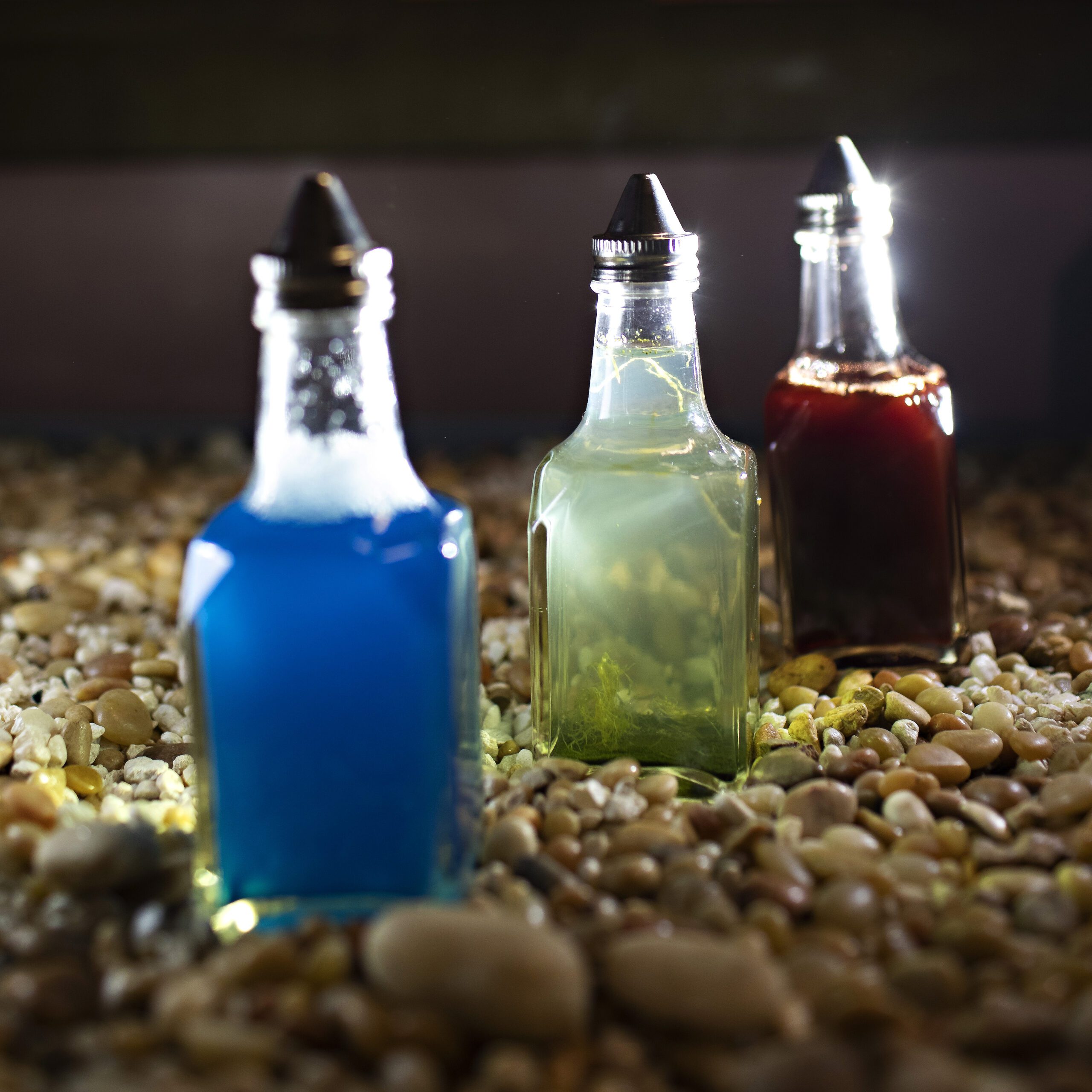
2020
Food, ASMR, mixer and speakers, lighting, slide show
Led by Hank and Bean
Sound: Yotam Mann and Sarah Rothberg
Thanks to Sunview luncheonette and Dylan Gauthier
Presented at Sunview Luncheonette, Brooklyn, NY
This work is part of the project:
Soupy Salty Sonic, an edible exploration of fluid ocean spaces was a beta dinner and an aural/oral experiment, in conjunction with the exhibition “Wet Logic” at bitforms gallery.
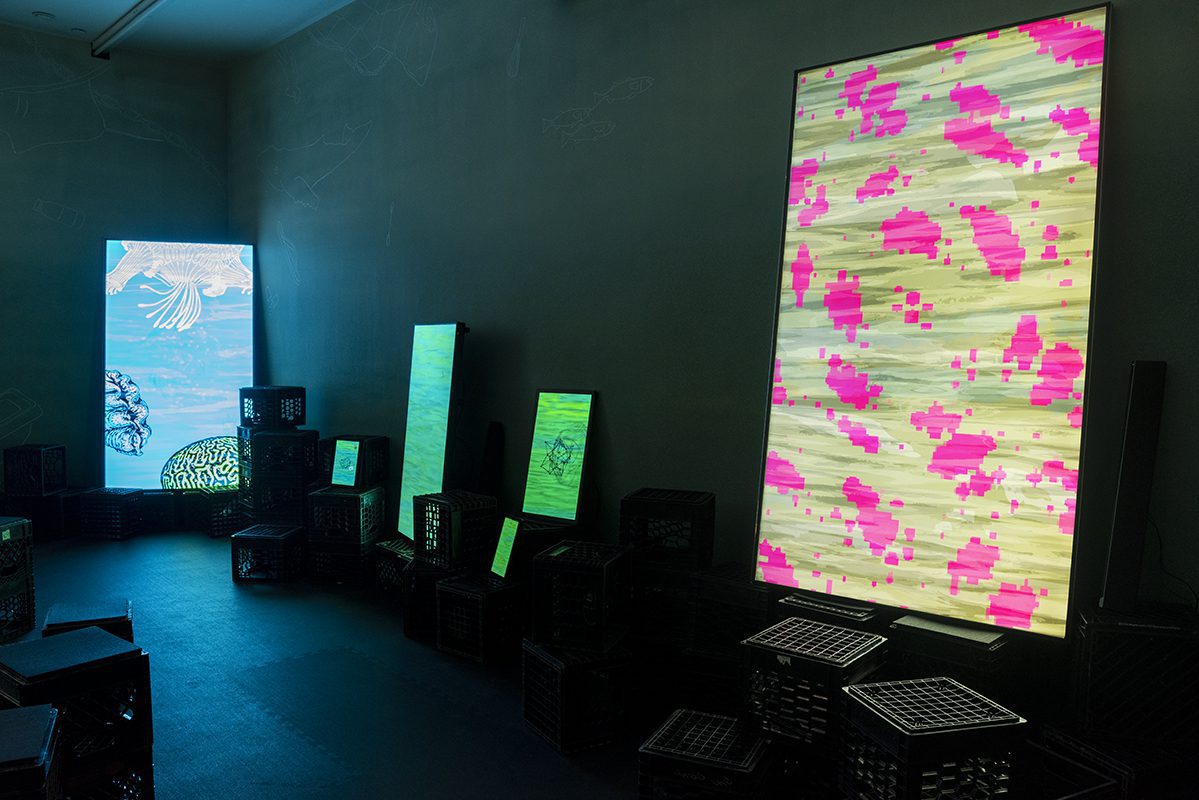
A set of three software-driven animation works that explore the ocean and its inhabitants as a fractal and restless repository of reflections and projections. The series offers an ocean poetics to produce new affections for the ocean at large—a cosmopolitan sea inclusive of graceful, filthy, tangled, and fantastic realities and imaginary churns. Custom software allows…
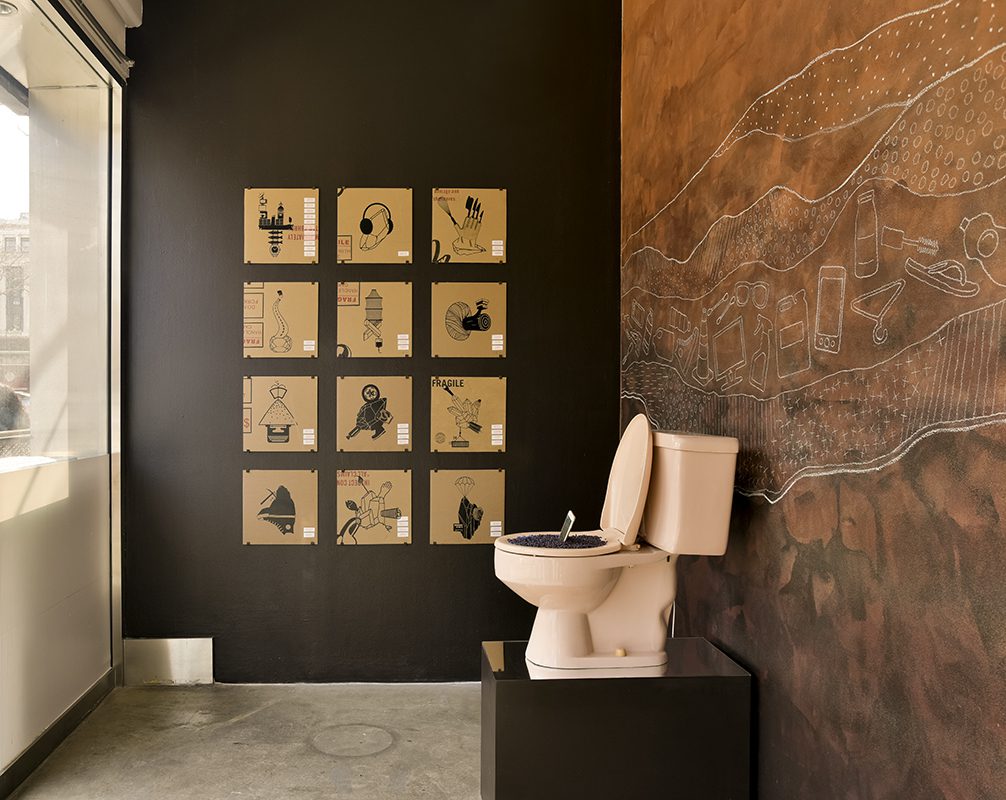
2020
Custom software, wall drawings, silkscreen prints, toilet, recycled nurdles, fishbowl fountain
bitforms gallery (link)
This work is part of the project:
Wet Logic, a collaborative exhibition by Marina Zurkow and Sarah Rothberg, presents a model of the world organized according to a wet, oceanic ideology rather than a dry, land-based paradigm.
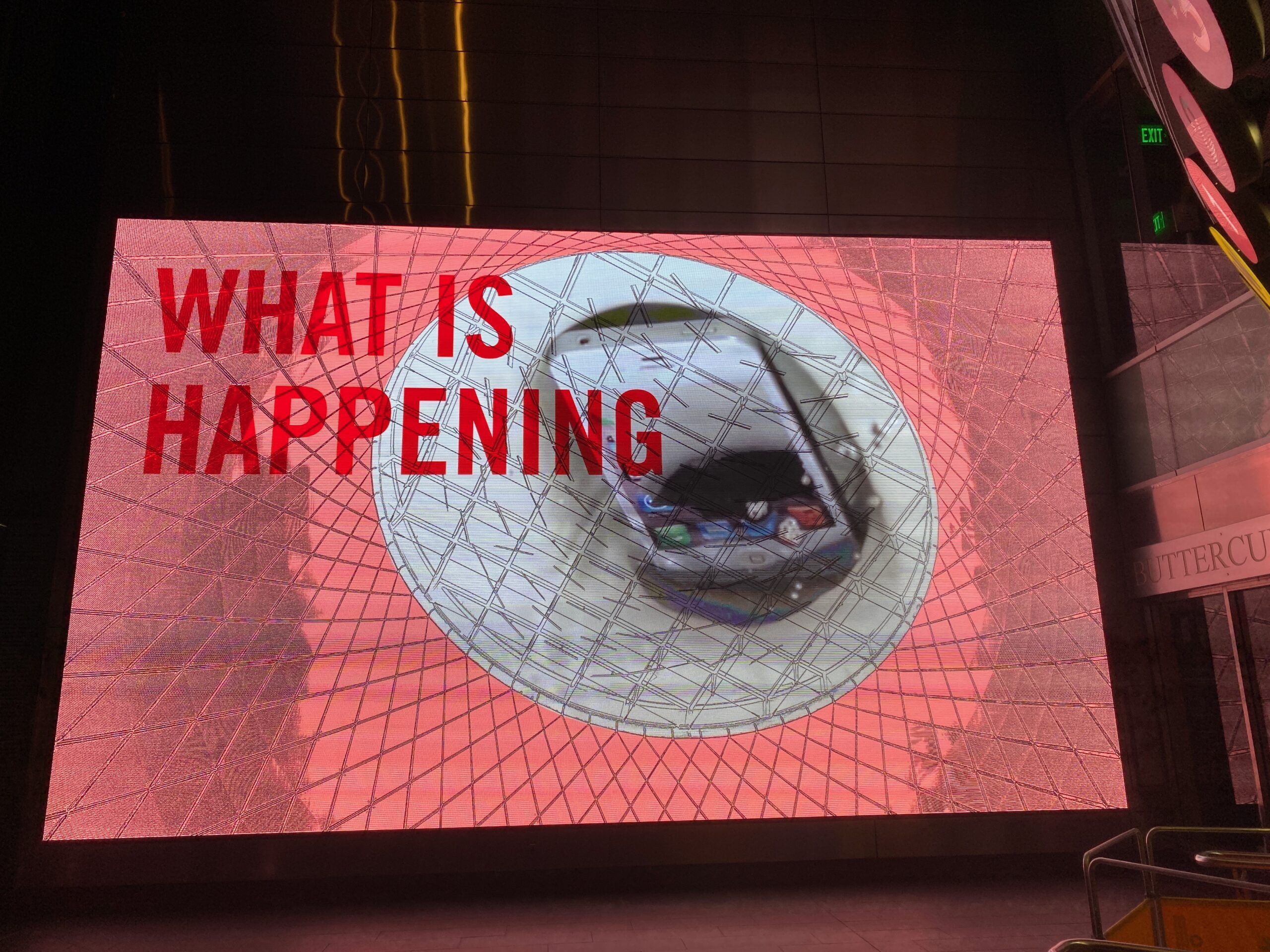
2020
Site-specific video installation (52 screens) at the Fulton Transit Center, New York
Created in collaboration with Sarah Rothberg
Commissioned by MTA Arts & Design.
Sarah Rothberg and Marina Zurkow’s video project “WHAT IS HAPPENING” at Fulton Center combines site-specific drawings of the transit hub’s architectural elements with text and animated collage. Philosophical queries like “WHAT IS POSSIBLE” or “WHAT IS MOVING” prompt the minds of viewers passing through. These provocations are met with clever visual juxtapositions, such as a doughnut rising
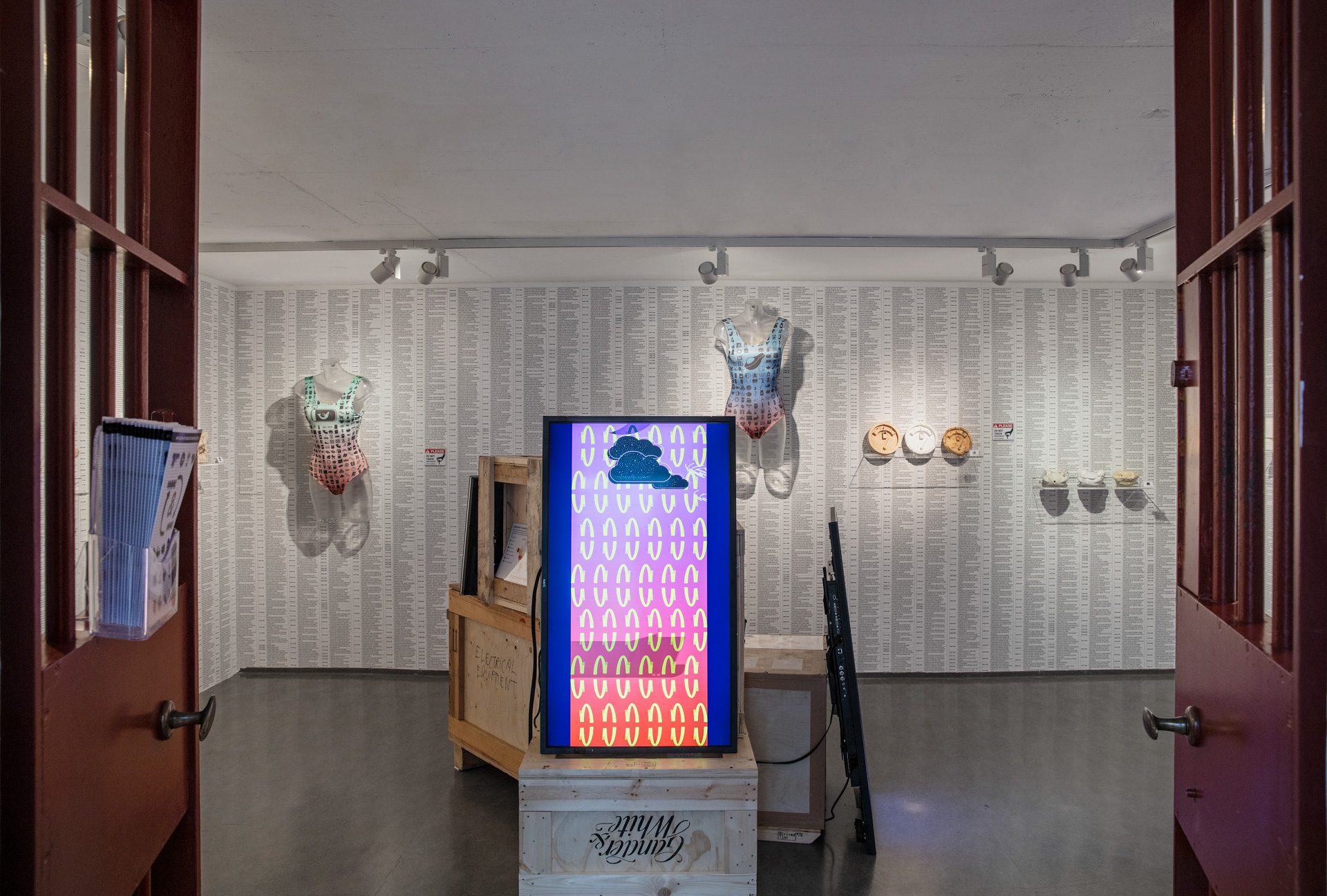
2019
Custom animation software, custom bathing suits, screens, shipping crates, plaster, 3D prints, mycelium, plexi shelving, custom wallpaper
In collaboration with Sarah Rothberg and Surya Mattu<br>
Software: Sam Brenner <br>
Web development: Neil Cline
Solo exhibition at Jugendstilsenteret og KUBE, Ålesund, Norway
This work is part of the project:
Part of the group exhibition, “Edge of the Sea”
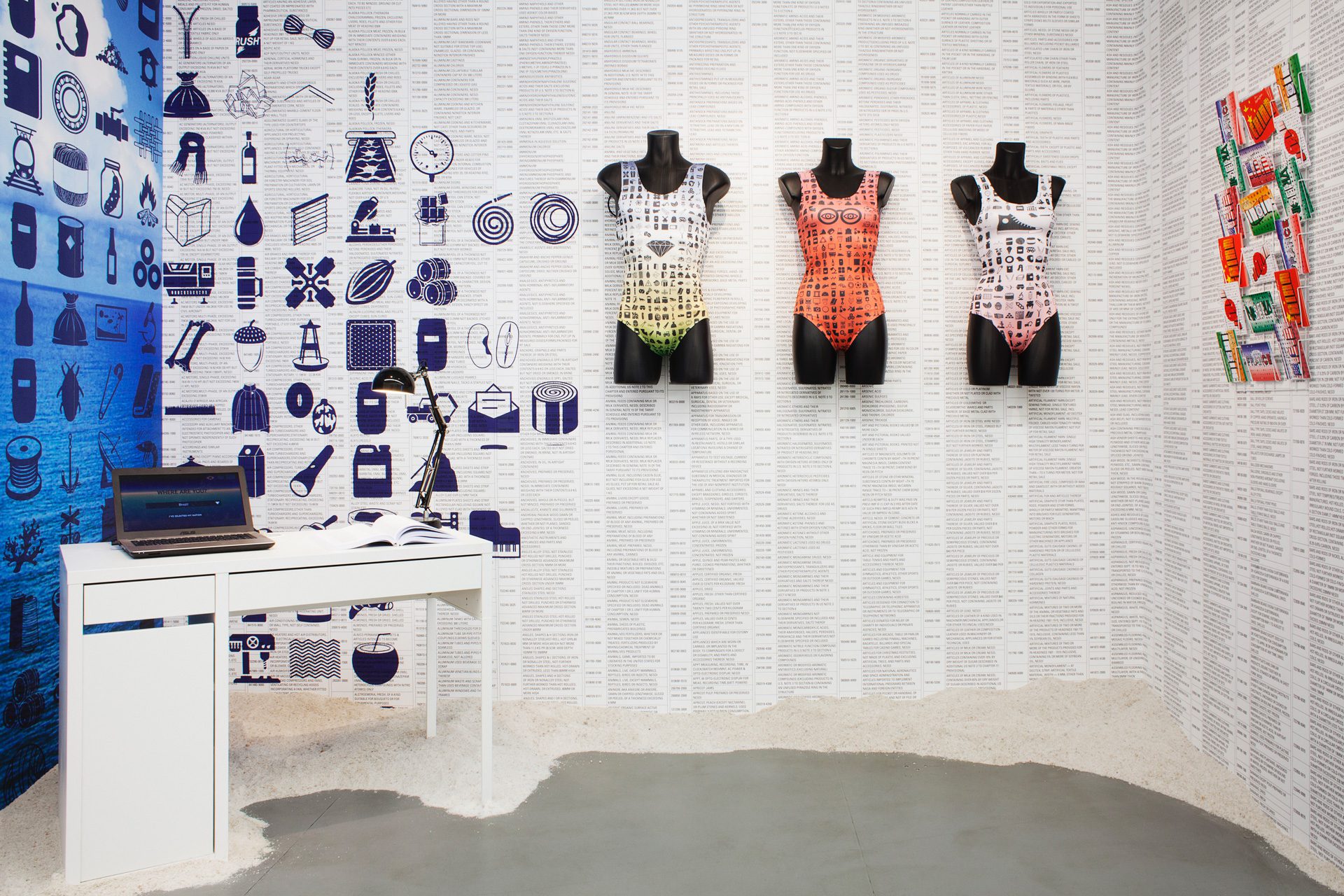
2019
Custom bathing suits, custom wallpaper, custom postcards, custom website, laptop, desk, mannequins, postcard rack, salt
In collaboration with Sarah Rothberg and Surya Mattu<br>
Web development: Neil Cline
Group exhibition “Ici Sont Les Dragons” at Maison Populaire, Montreuil, France
https://www.maisonpop.fr/ici-sont-les-dragons-2-3-venez-comme-vous-etes
This work is part of the project:
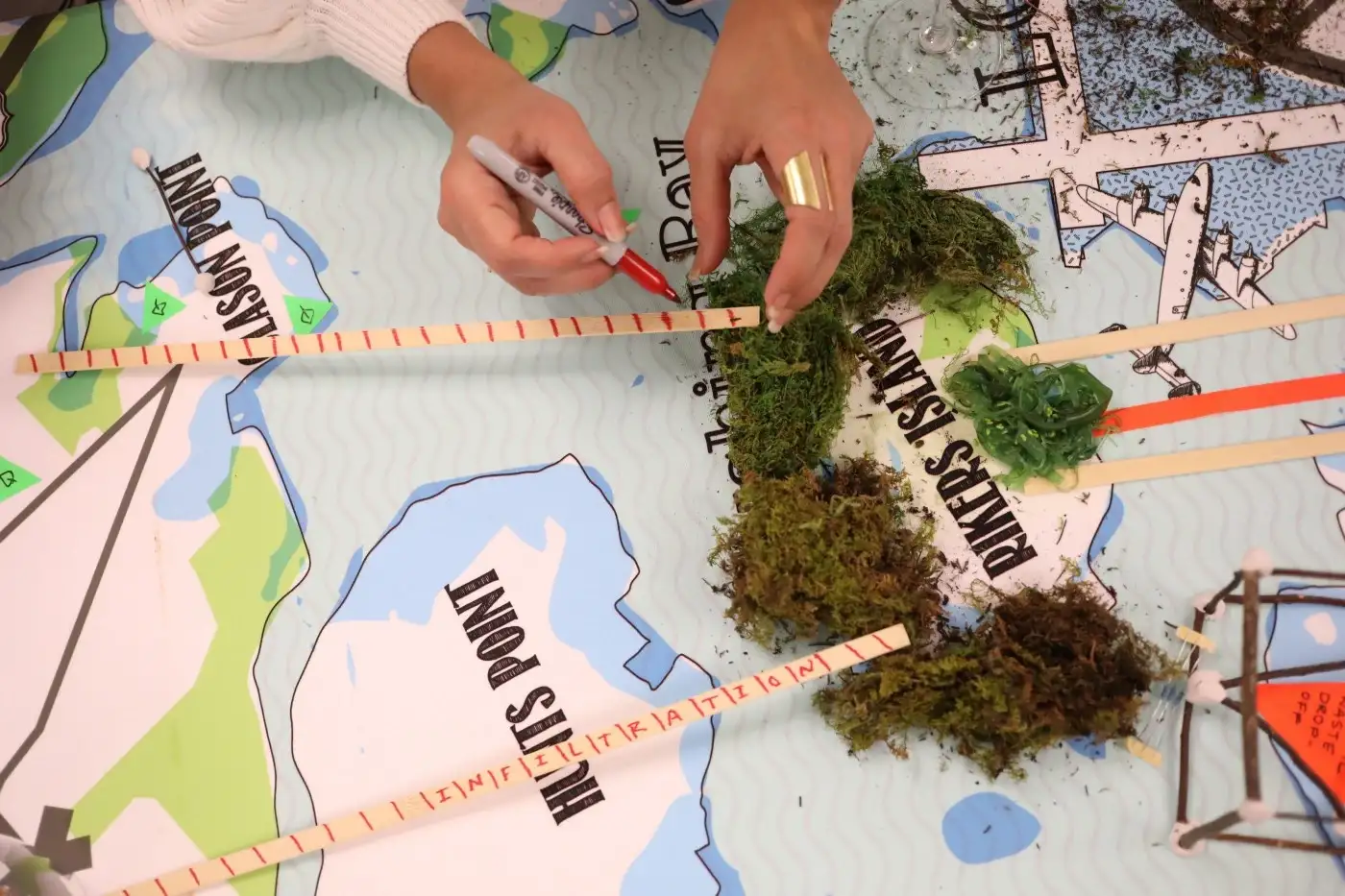
2019
Food, printed fabric maps, plexiglass, prototyping materials, print graphics/texts
Chef: Jen Monroe / Bad Taste
Artists: Marina Zurkow with Lydia Jessup and Ashley Jane Lewis
Documentation: Gilad Dor
Commissioned by the Guild of Future Architects
To kick off the Guild of Future Architects’ Future Imagination Summit, Monroe and Zurkow created an interactive, edible map and visioning workshop looking at the present and future of food equity and climate change in New York’s 5 boroughs. 50 participants ate, engaged in discussion, and played — both with their food and other art-making material
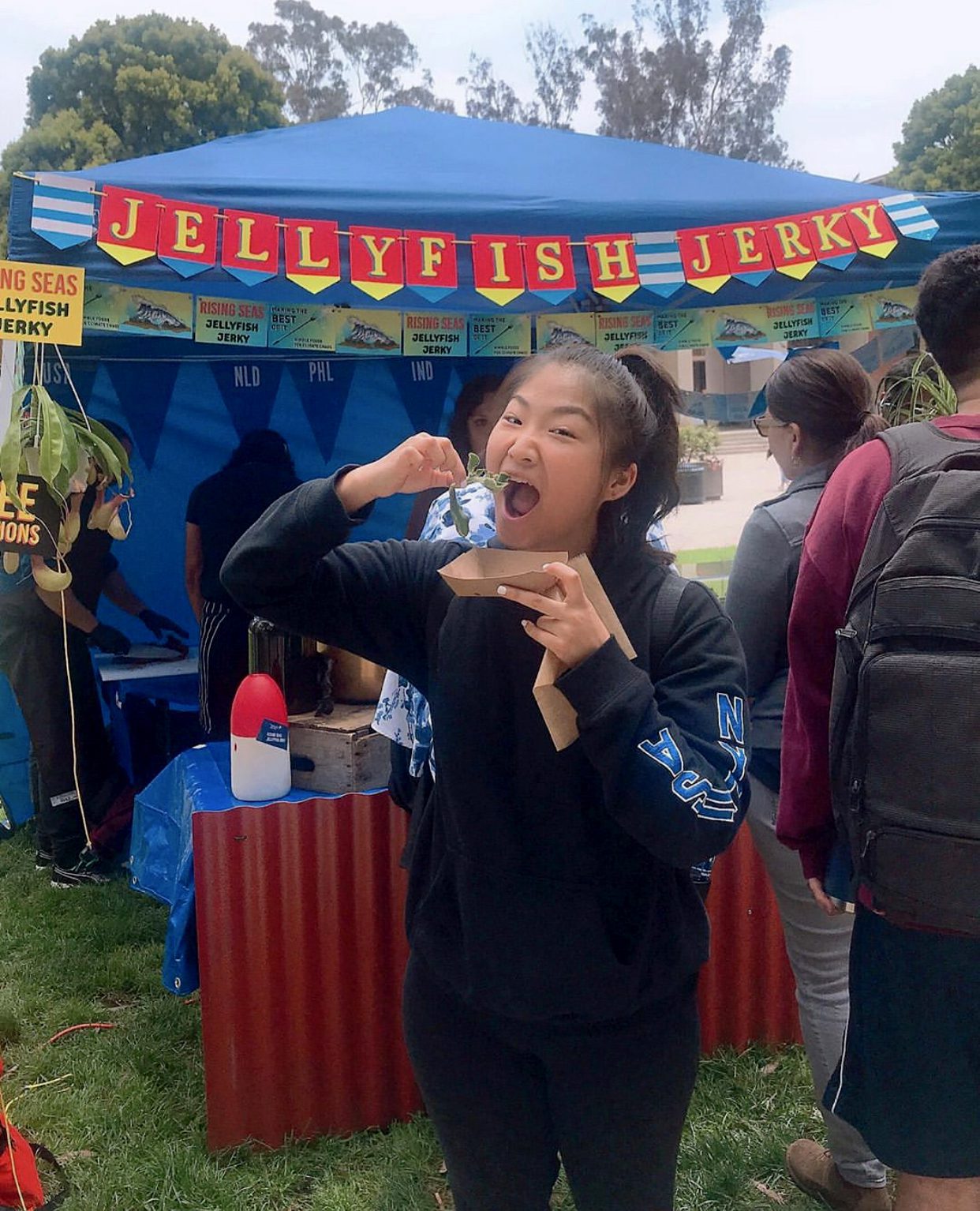
2019
Cannonball jellyfish, ice plant, kombu seaweed, condiments, laser-cut lettering, signage, tarp, stencil, plants
In collaboration with chef duo Hank and Bean
Commissioned by LENS (Laboratory for Environmental Narrative Strategy), IOES (Institute of Environment and Sustainability), UCLA
This work is part of the project:
A one-day pop up jellyfish jerky snack shack on the campus of UCLA. Serving Cannonball jellyfish jerky served with a choice of seasoning condiments reflective of 5 diverse regions susceptible to sea level rise: Haiti, the US Gulf coast, Sri Lanka/ S. India, Philippines, and the Netherlands. In addition, the snack shack served “invasive” ice
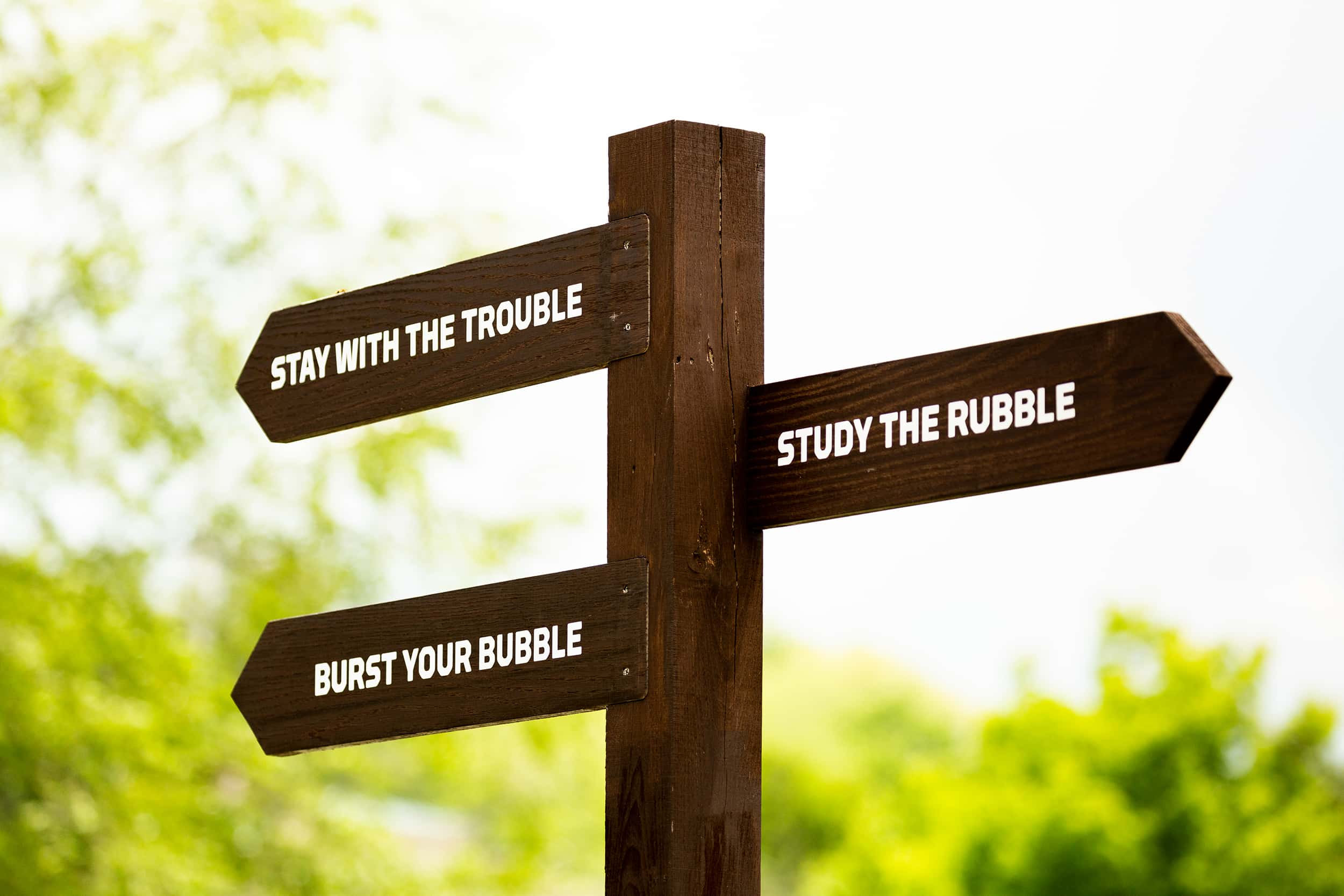
2019
Locust and red oak wood, vinyl plaques, lettering
Dear Climate Collective, in collaboration with Jennie Carlisle, Curator and Director of the Smith Gallery, Appalachian State
Fabrication: Roger Atkins of Cove Creek Woodworks
Fresh cut locust and red oak wood donated by Ian Snider of Mountain Works Sustainable Development
Documentation: Cheryl Zibisky
Commissioned by Climate Stories Collaborative at Appalachian State
This work is part of the project:
“What do I need to know for the planet to thrive?” This question animates “Signs, Wonders, Blunders,” an installation of 13 signposts, each with three multi-directional signs, located at interesting and suggestive locations on campus. The signposts use book titles and common phrases to create a set of playful proposals for new ways of understanding…
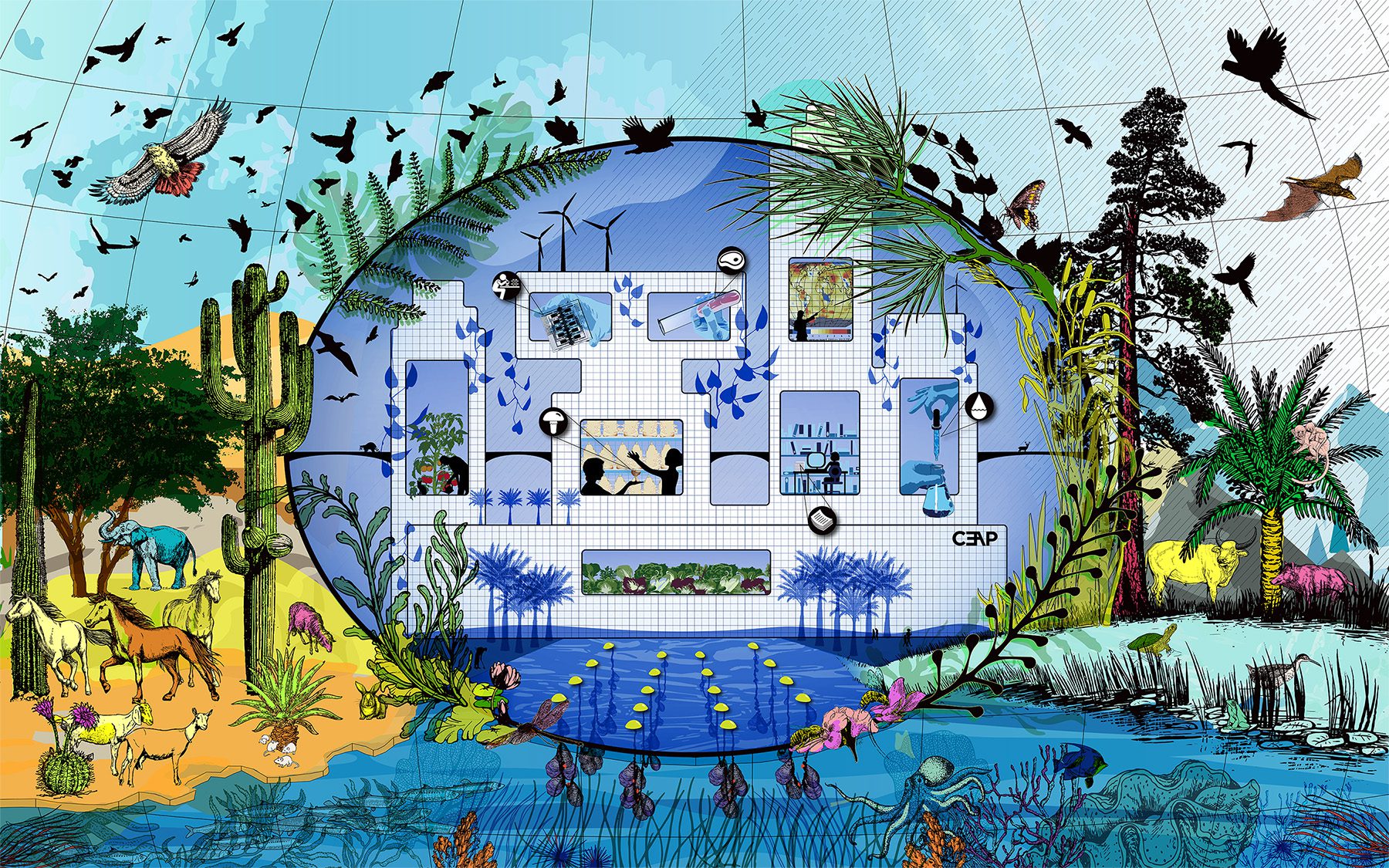
2018
Digital graphic
In collaboration with Sarah Rothberg
Commissioned by CEAP
https://wp.nyu.edu/ceap/
CEAP commissioned Zurkow and Rothberg to create a primary, scalable illustrative identity for the Center, who “conducts, supports, and disseminates research that contributes to the protection of both animals and the environment.”
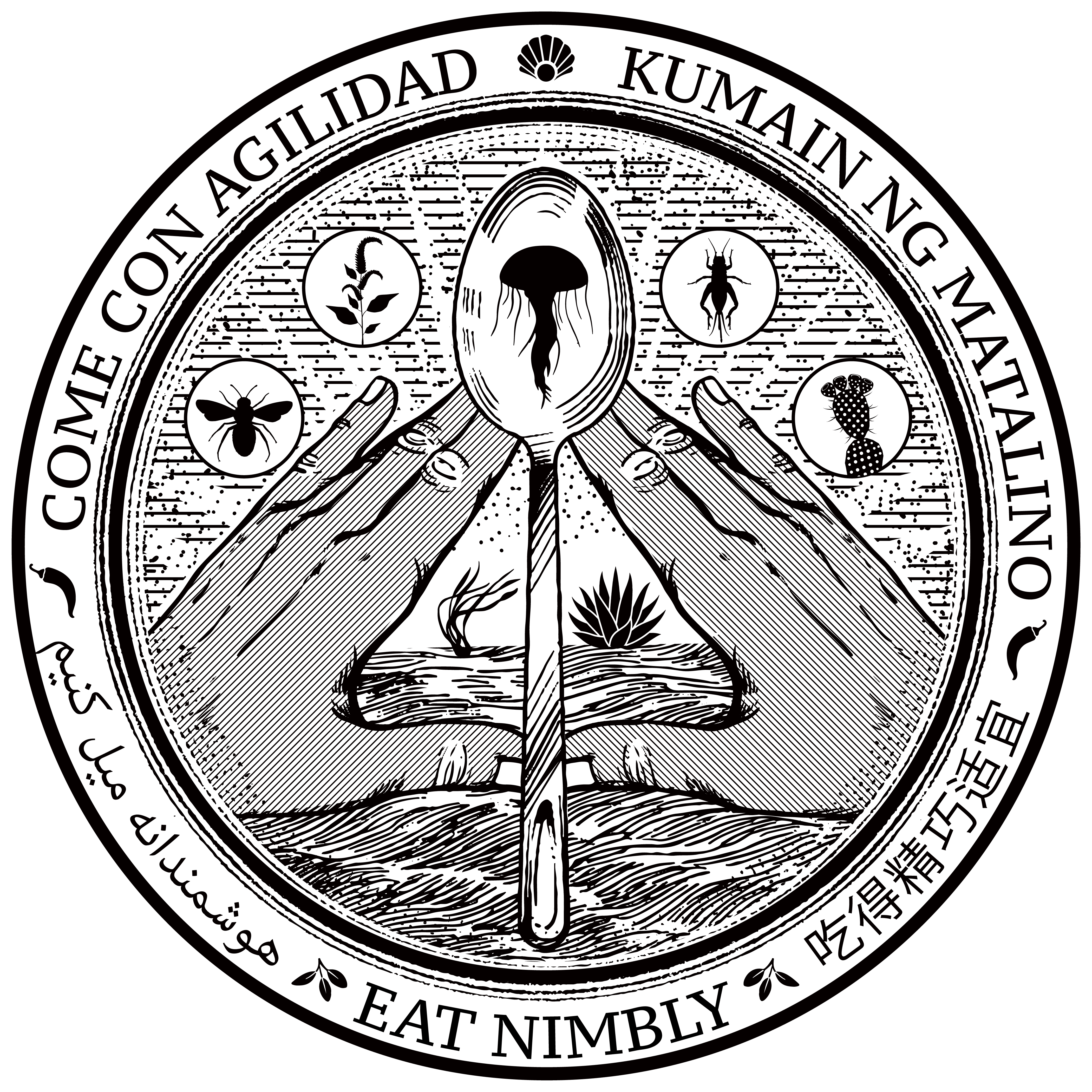
2018
Food, performance, props, slide show
In collaboration with Hank and Bean
Supported by Laboratory for Environmental Narrative Strategies (LENS) at the Institute of the Environment and Sustainability (IoES), UCLA, led by Allison Carruth
This work is part of the project:
A dinner and movable feast exploring the edible desertification of the Los Angeles region, one whose contemporary culture still holds dear the sensibility of a Mediterranean diet.
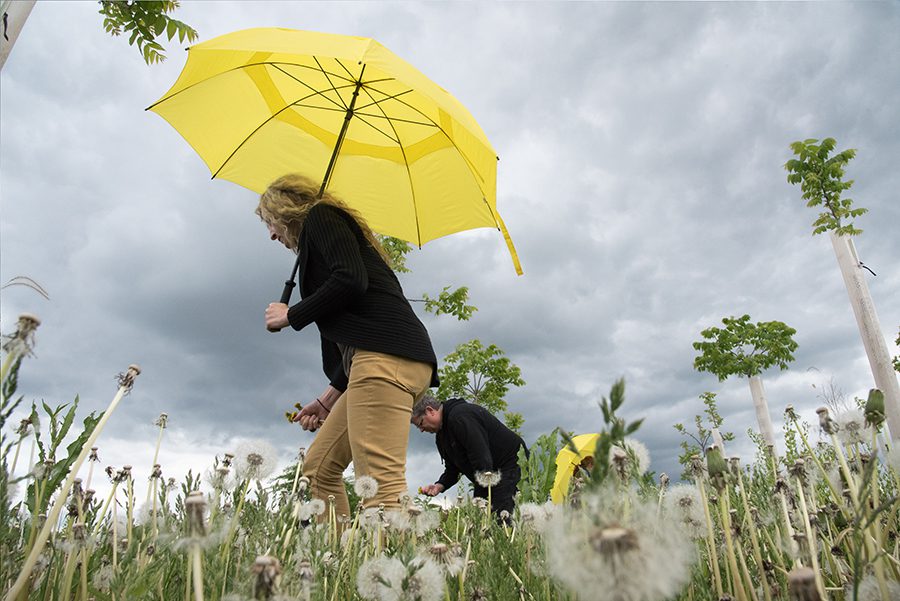
2017
Food, dandelions, placemats, writing materials, thoughtful company
In collaboration with Valentine Cadieux and Sarah Libertus
with Jim Bovino/Topos, Courtney Tchida, Tracey Deutsch
All images courtesy Dan Marshall.
Presented at The Good Acre, Minneapolis
Commissioned by Northern Lights.mn and presented as part of Northern Spark, Climate Chaos | Climate Rising, 2016-2017, with the support of the National Endowment for the Arts and the Knight Foundation
This work is part of the project:
The invitation: These Dandelion potlucks provide a community meal space to gather, share food, and explore key questions connecting food and climate change. They’re a more informal chance to add to the meal story sharing toolkit that Making the Best of It has been cultivating.
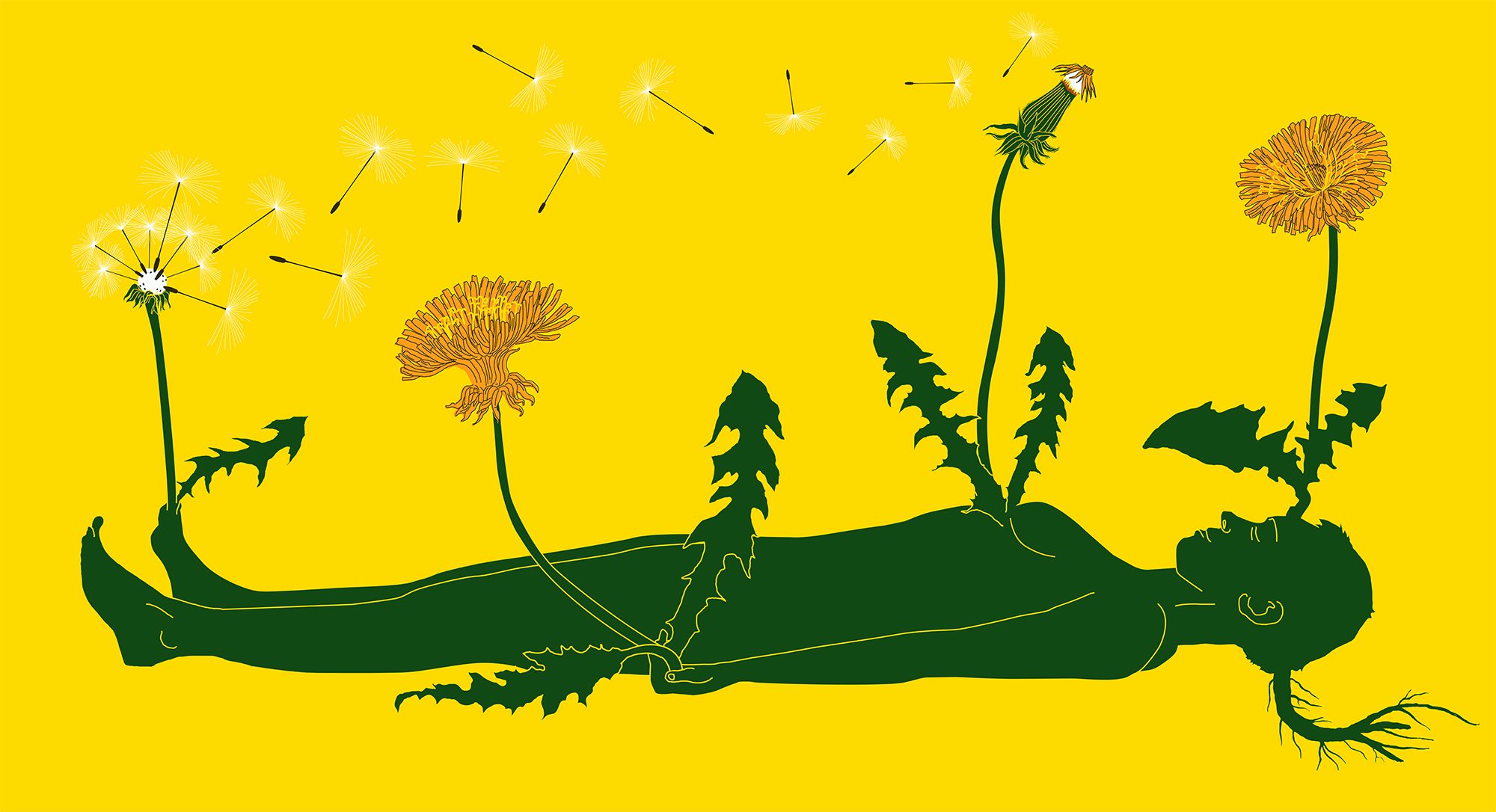
2017
Dandelions, beets, custom structure, sod, music, paper, costumes, banners
In collaboration with Valentine Cadieux, Sarah Libertus, Aaron Marx
Dandelion kvaas by Jim Bovino
Dandelions and more from Courtney Tchida
All images courtesy Dan Marshall
Commissioned by Northern Lights.mn and presented as part of Northern Spark, Climate Chaos | Climate Rising, 2016-2017, with the support of the National Endowment for the Arts and the Knight Foundation
This work is part of the project:
“Join us in a ritual festivity that invites you to become more dandelion. From trans-species oration to cow eulogies to intimate ocean tributes, this is the party of Making the Best of It, a communal service compressed into the space of a toast—to how all of us are making the best of it, now and…
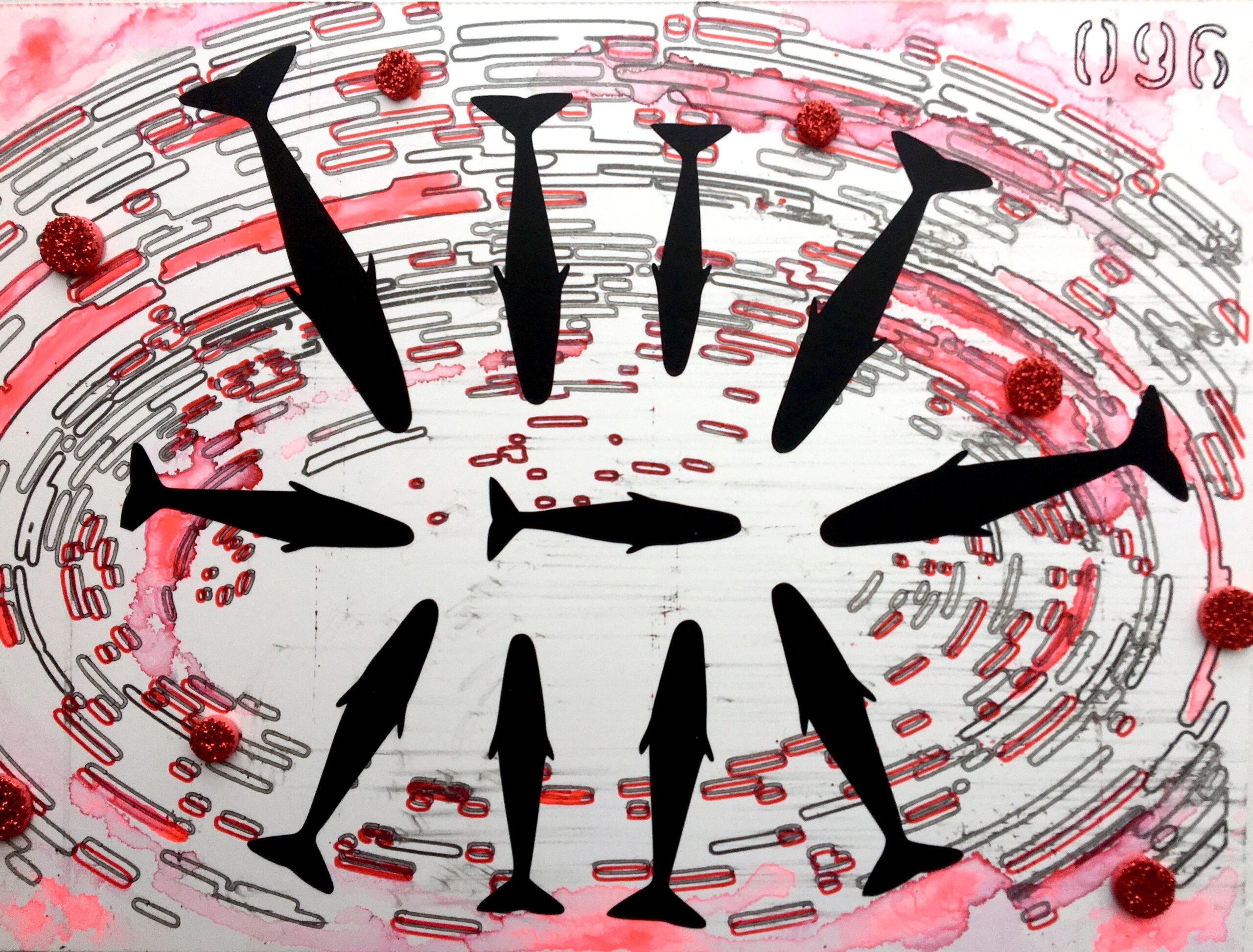
In 2017 I audited a class at ITP (the Interactive Telecommunications Program), Tisch School of the Arts, NYU called “100 Days of Making” led by Katherine Dillon. The class is structured just as the title proclaims: 100 days of unique creative outputs. It is a relentless process, one in which you work fast enough to
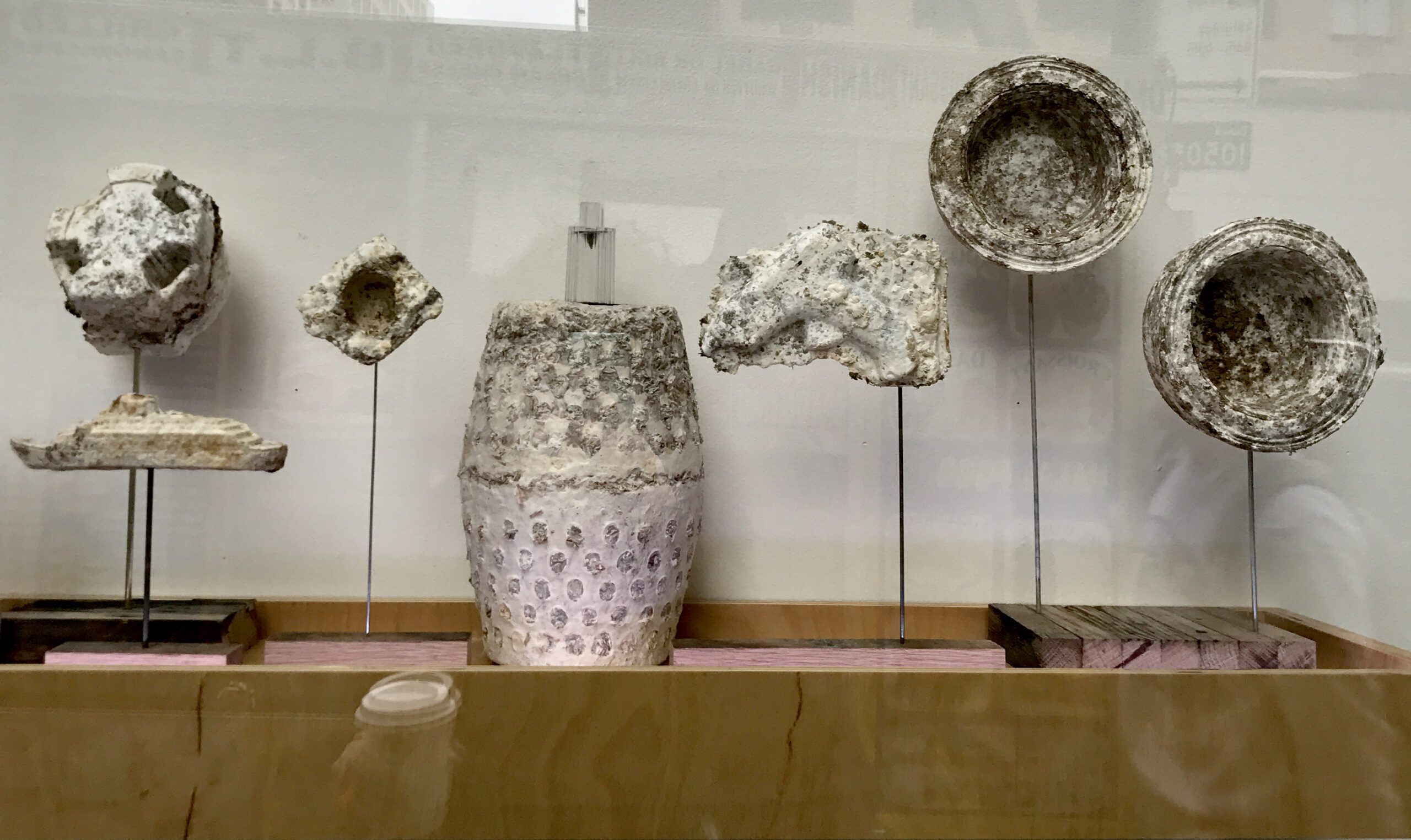
2017
Unique objects. Pleurotus ostreatus (oyster mushroom) mycelium,
coffee husks, metal rods, reclaimed wood
These anthropological artifacts appear here as fossilized remains from a mycocentrically parallel world. We are eaten by petroleum; we continue to believe that oil from rocks makes us immortal, but that promise was a fossil-fueled trick to resurrect itself. Closing the supply chain, making styrofoam substitutes, making sculptures from waste. These sculptures are cast from plastic blister packs and clamshell packaging, and
2017
Field guide, self-guided audio tour, website
Floating Studio for Dark Ecologies (FSDE)
(Nicholas Hubbard, Rebecca Lieberman, Marina Zurkow)
with Bruce Shackelford (voice), Jane Cramer (audio engineering), Justin Peake (music)
Funded in part by a Tisch School of the Arts Dean’s Faculty Grant, and the Brooklyn Arts Council
Focusing on Newtown Creek, the polluted and little-known waterway that borders Brooklyn and Queens, the art collective Floating Studio for Dark Ecologies (FSDE) aims to expand awareness, citizenship, and affection for this post-natural place that is currently in the final stage of the Environmental Protection Agency’s Superfund assessment process. We have been concerned with designing
2017
Site specific installation
Ladder, binoculars, stake flags, laminated key, toolbox
In collaboration with Floating Studio for Dark Ecologies (FSDE)
(Nicholas Hubbard, Rebecca Lieberman, Marina Zurkow) with Chester Dols (fabrication)
First created for Works on Water Triennial, 3LD, New York
Floating Studio for Dark Ecologies (FSDE) dreams of an ongoing and open library of citizen-driven field guides. The aim of these guides is to embrace the everythingness that—like it or not, pretty or not, dirty or not—constitutes the place where we are. We believe the first step to change requires an unblinkered intimacy with the
